Last week we began our Foreknowledge and Freewill series with Dr. Dale Tuggy who gave us an overview of the various positions. He also commended Open Theism as a view that triumphs where others suffer from logical contradictions. Now, today in part two, Tuggy will further explore and defend Open Theism against a number of common critiques including:
- If God doesn’t know the future, how can there be prophecy? Specifically, how could Jesus predict that Peter would deny him?
- Why do evangelicals generally look down on Open Theism?
- Isn’t Open Theism just Process Theology dressed up with some bible references?
- Doesn’t open theism posit a small God with limited knowledge?
Additionally, we delve into how Open Theism deals with prayer, especially in light of Hezekiah’s prayer for healing.
Now, I realize some of you listening are ardent Open Theists and some of you are not. Keep in mind that next week we are going to hear from Dr. Leighton Flowers on the Ariminian view and then Dr. Sean Cole is going to lay out the case for Calvinist compatabilism. My goal here is to expose you to multiple views so you can see all of the options laid out side by side.
—— Books ——
- The Openness of God: A Biblical Challenge to the Traditional Understanding of God by Clark Pinnock, Richard Rice, John Sanders, William Hasker, and David Basinger
- God of the Possible: A Biblical Introduction to the Open View of God by Gregory Boyd
- The God Who Risks: A Theology of Divine Providence by John Sanders
- Most Moved Mover: A Theology of God’s Openness by Clark Pinnock
- God, Time, and Knowledge by William Hasker
—— Links ——
- See other episodes in this series on Foreknowledge and Free Will
- More about Dale Tuggy at Trinties.org
- Get his book, What Is the Trinity?, or read his article in the Stanford Encyclopedia of Philosophy about Trinity theories
- Listen to previous Restitutio podcasts with Tuggy here
- Check out The Adjustment Bureau movie, starring Matt Damon and Emily Blunt

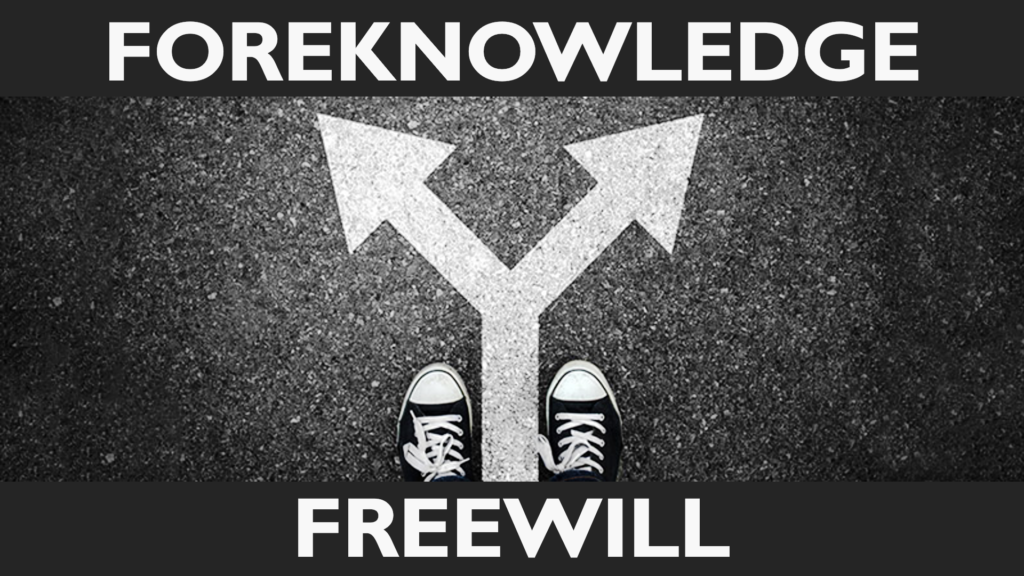
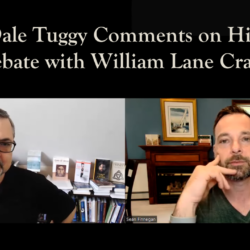

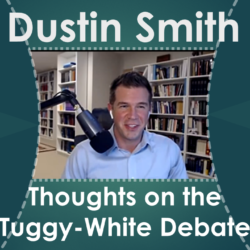
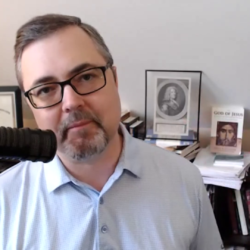

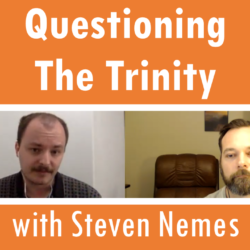
I found this discussion very interesting and it has certainly prompted me to re-evaluate my belief in God’s timelessness. I assume that based on this discussion, Dr. Tuggy and Sean believe that the past and future do not exist as concrete realities, but that only the present can be said to truly “exist”. Now if God is timeless, then the past and future must exist as concrete realities since in some sense God “exists” within them; however, if God is “in time” as we are, then the past does not need to exist since God is no longer “in” it and the future does not exist since God has yet to arrive “in” it. This seems logical to me if we reject God’s timelessness; however, I’m still not 100% sold yet.
With regards to prophecy, I agree that many prophecies are dependent on God’s actions or seem like they are given to prompt certain types of human action. However, I feel as though you are dismissing too easily those prophecies that depend upon “free” humans to act a certain way to bring about a certain result. Your discussion regarding Peter’s denial came off as rather weak. Jesus predicted specific actions that Peter would take and gave a specific number. There is no indication of speculation or uncertainty in Jesus’ prediction. It seems very much like a fait accompli. Now granted, this may not prove that the future event already took place in some sense, but I think it does show that Peter did not have libertarian free will in this instance.
This touches another aspect of your discussion. You both concede that there are clearly instances in the bible where God is depicted as interfering with people’s free will when it suits his purposes. You seem to have no issue with God doing this and I agree you should not. However, the question becomes, where is the line drawn? Now obviously God likely intervenes even when the bible does not explicitly state he does. So is there a difference if he intervenes 1% of the time or 99.9% of the time? If he intervenes 99.9% of the time, are we still “free” by your definition?
Also God has to choose when to intervene and when not to. So even if you get around not attributing evil to him, you still have to explain why he chooses not to intervene sometimes and not others. In the end, God still controls the extent of evil and what evil people can and cannot do. If God truly did not want something to happen, he can prevent it. So if God allows something, then obviously it is at least in some sense necessary for his purposes.
For example. Imagine that a father has two children that are fighting. The older child is savagely beating the younger child and the father does nothing. Someone comes along and asked the father why he does not intervene to stop the fight. The father responds by saying “I told the older son not to fight, yet he still did. But, I very much care about his free will so I won’t intervene even if it looks like he will kill my younger son.” Any observer would find this argument absurd. So why is it applied to God? It seems silly to me to ascribe God’s action or inaction to prevent evil to some desire to preserve “free will”. There might be a larger purpose to God’s allowing evil that we likely do not understand and perhaps God even bring about outcomes that we might label as “evil” from our limited perspective. But, to claim that he does not intervene for the sake of human free will seems to fly in the face of his actions in scripture and logic.
Another comment on the thought experiment Dr. Tuggy put forward in which a hypothetical drug exists that would cause your child to love you. Based on Dr. Tuggy’s definition of love necessitating a “free will choice,” isn’t such a drug a logical impossibility? If the drug forces your child to “love” you, then whatever the child is doing that is being called “love” is not actually love since a free will choice is not being made. For instance, the drug could make your child patient, kind, compassionate, slow to anger etc, but based on Dr. Tuggy’s definition of love, the drug does not make your child love you.
I also wonder why you and Dr. Tuggy seemed to instinctively state you would not give your child such a drug. Is it because the drug was being given for the selfish desire that your child would love you? What if the drug just made your child more loving in general? Would you still refuse the drug?
I will propose an alternate hypothetical. Supposed you have a child who is very mean to you and to others. He yells and gets into fights. He says nasty things, disobeys you for no reason and is generally very evil. You think something is wrong with your child so you take him to the doctor and the doctor says he has a rare disease called NIS. Apparently there is a wonder drug that if taken, will cause your child to be patient, kind, compassionate, slow to anger etc. Do you say no to the drug because you don’t want to mess with your child’s free will? Do you decide you don’t want to “force” your child to act better by giving him this pill? I think you would not instinctively say no to the drug in this situation. You would at least consider it, especially if your life was a nightmare because of what your son was doing.
I really seems like you are choosing to define love in such a way that anything that lacks a “free will action” is not love. Even if it looks very much like love, if it lacks a “free will action” it can’t be love. I’m not sure why this should be the case aside from your assertion. Perhaps you could devise a logic proof to show that love requires free will actions? Or is the requirement of free will action for love simply an axiom and definitional in nature?